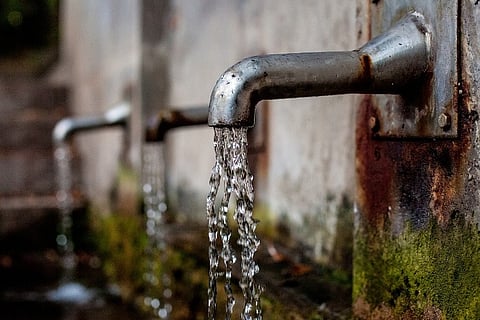

The south and south western part of Bengaluru have augmented water supply from river Cauvery. But it is the north and north eastern part which depends on ground water and alarmingly, 85% of ground water has been exploited. The resource is depleting and the city may soon witness water scarcity, the revised master plan 2031 (RMP) states.
The Bengaluru Water Supply and Sewerage Board (BWSSB) supplies 1470 MLD (Million litres per day), out of which 46% is lost through illegal connections. Shockingly, this supply still does not cater to outer areas of the city.
The RMP projects demand for water in 2031 as 5,340 MLD (50 tmcft) for around 20 million residents. This figure includes 3,920 MLD for potable use and 2,745 MLD for non-potable and commercial use.
Currently, 970 MLD of surface water from Cauvery and Arkavati rivers and 148 MLD of ground water is available for a population of 6.8 million. The BBMP area has seen an increase in the number of private borewells, which has resulted in the depletion of the ground water resource, the report says.
“We have 29tmcft awarded from the Cauvery Water Tribunal but the distribution lines for entire Bengaluru city are not yet ready. That is why the crisis deepens. We've planned to increase our Local Planning Area jurisdiction to 1219 sqkm of Bengaluru, beyond the existing BBMP limits, to cap haphazard development in gram panchayat areas under the Bengaluru Metropolitan Area and also to ensure planned infrastructure for resource access to all in the 1219 sqkm area,“ a BDA official told TOI.
BWSSB is also to expand its coverage area for supply of drinking water and sewerage connections to the entire city. One of the key concerns is to reduce unaccounted water flow which stands at 46% at present.
The lack of a systematic mechanism for monitoring water loss and the absence of a means to minimize it have been blamed for the situation.
The report states that there are no restrictions on drilling borewells, which is why Devanahalli and surrounding areas are witnessing the alarming depletion of ground water.
Also, the lack of storage space and poor distribution system clubbed with the civic agencies not taking in the initiative to create awareness about rainwater harvesting and ground water recharge have been named as causes for the current situation.
The report suggests that rooftop rainwater should be stored for domestic purposes or groundwater recharge.
It also suggests that a strong legislation is necessary to check over-exploitation of ground water. Rainwater harvesting should be made mandatory for all domestic and commercial establishments with an area of 100 sq m and above. The storage capacity of rainwater harvesting systems should not be less than 10,000 litres for structures with a 100-sq m roof area and ground water recharge pit for borewells should be made mandatory, the report suggests.